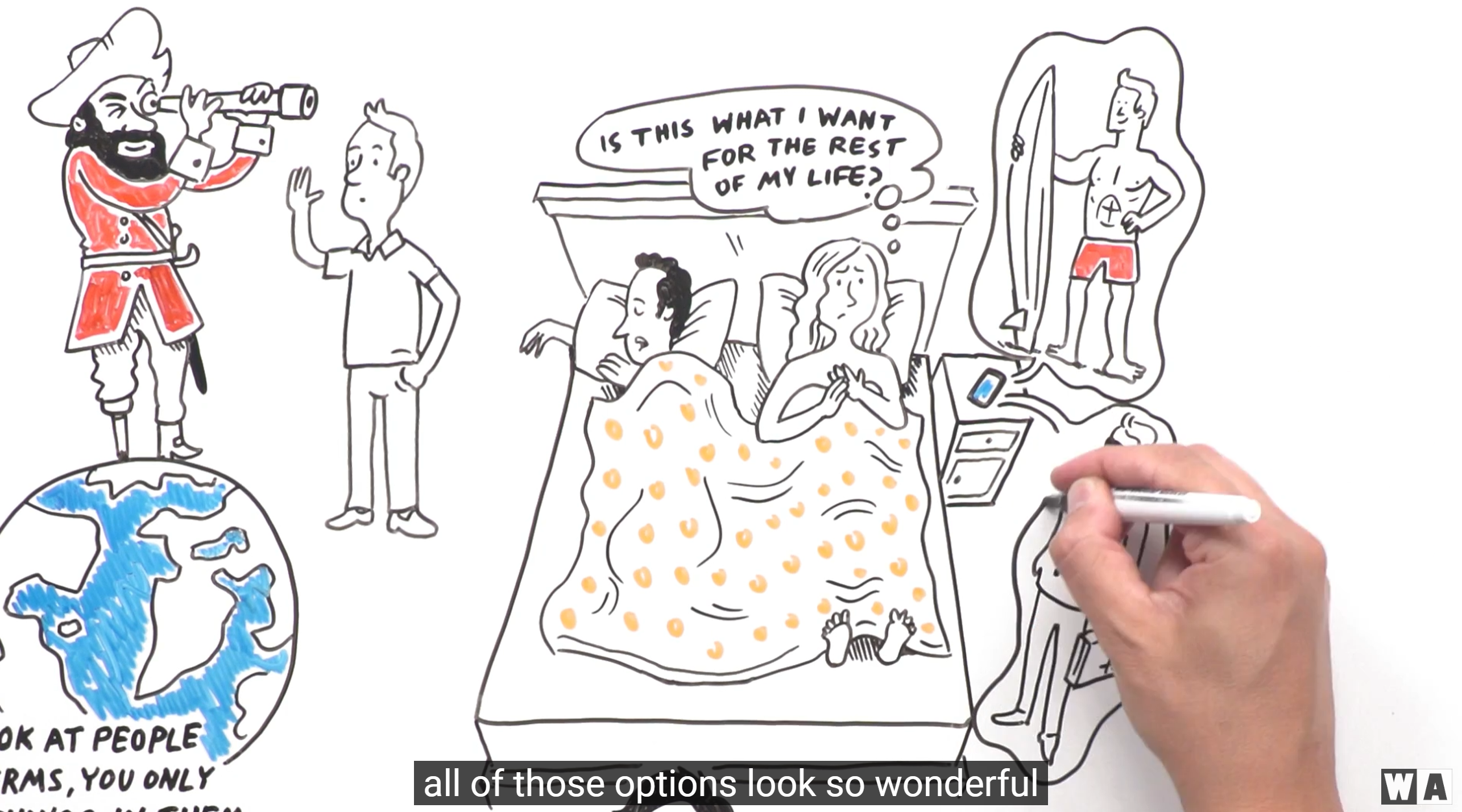Your cart is currently empty!
Dan Ariely: On Dating & Relationships

When you get to know somebody better, what are some of the first things you learn about them? That they disappoint you in all kinds of ways. Right?
So, this is true in visual illusion. If you take pictures of people, and you blur them out, and you make them fuzzy, everybody looks more attractive. As you get into the little details of life, you start seeing wrinkles, right? When you look at people in general terms, you only see the good things in them.
This, by the way, is not just about romantic attraction. You know, when companies hire CEOs, and they hire CEOs from outside the company, they often have high expectations from them. But when you look at the results, the results show that they pay way more to external CEOs than internal ones, and they perform worse. But when you look at an external one, it’s very easy to say, Oh, my goodness, this person is just great, because you don’t know the little details. Right?
So if you if you look at somebody you don’t know very well, all the little annoying habits that they have, are just going to be outside of scope for you. And you will just imagine that they all work well. Only when they move in, you get to see those details.
So imagine a world in which, when you look at other people, they look more glorious, than when you get to know them in all the details. And now you’re in bed next to somebody, and you wake up in the morning, and you say, “Is this what I want for the rest of my life when I have other options here!?”
And this is Tinder, right? Your phone is here. And you’re basing all of those things, all of those options look so wonderful. By the way, also, in online dating or Facebook, whatever it is, people only present the positive sides, right? So you don’t – you have this biased idea that the outside option, the set of the outside option looks SO promising.
And now you wake up next to somebody, or you have a little fight with somebody, and you think to yourself, “In one click, I could have a date with somebody else.”
Now, imagine that you have an apartment, and you have a deal with the landlord that the lease is day-to-day. And every morning you wake up and you say, “Do I want to extend this lease or not?” And every day your landlord decide if they want to extend that lease or not? How much would you invest in the apartment? Would you paint the walls? Would you get flowers? Would you fix the walls? Would you do all kinds of things? Of course not.
Because you’re always with one foot outside. So the analogy is that you wake up next to your romantic partner every morning and you say, “Should we do it for another day? Or should we stop now?” The moment you think in the short term horizon, the odds that you will invest in the relationship is much, much lower.
So the thing that worries me is that when we are in a relationship, but continuously with one foot out, and continuously thinking about how the outside world is more tempting and more interesting, and so on, it’s actually not a good recipe for investing in a relationship. It’s not a zero sum game. It gets better when you invest in it. And if you don’t think you’re there for a long time, the lack of investment is just not high.